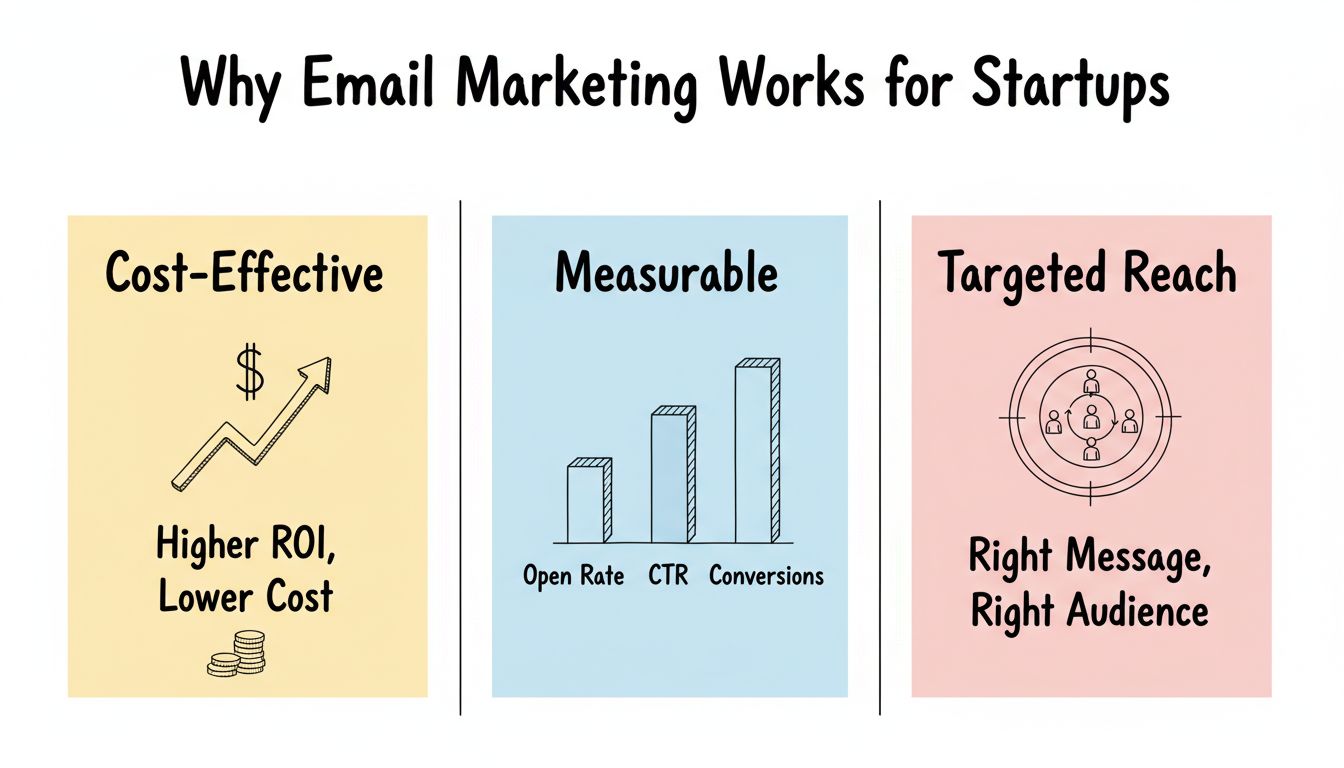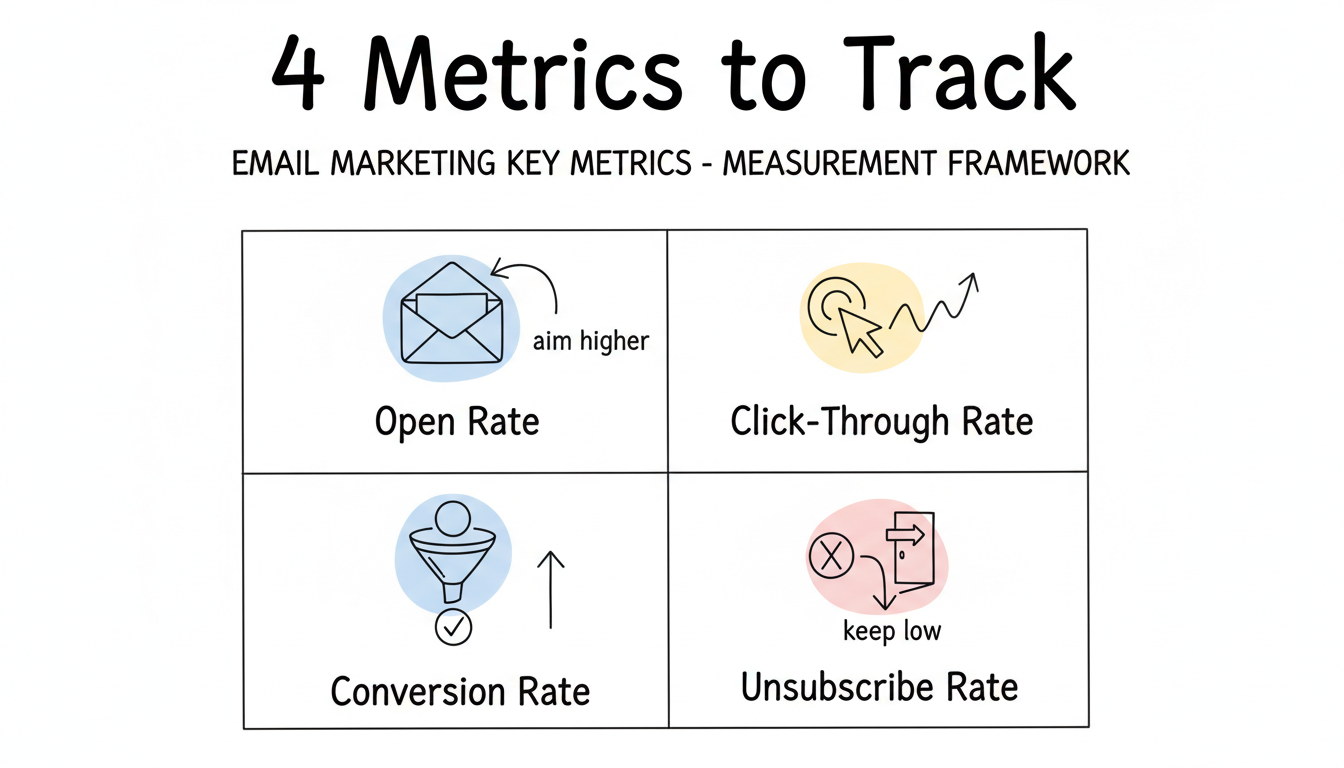Email marketing is an essential tool for startups looking to accelerate their growth and reach a wider audience. In today's digital age, email continues to be an effective and direct way of communicating with potential customers and nurturing existing ones. By understanding the importance of email marketing and implementing a strong strategy, startups can harness its power to drive business growth.
Email marketing plays a pivotal role in the growth of a startup by establishing and maintaining lasting relationships with customers. It provides a platform to communicate directly, delivering personalized messages and tailored offers that resonate with the target audience. Additionally, email allows startups to stay top of mind, ensuring the brand remains relevant and memorable in a crowded market.
When it comes to building a successful startup, effective marketing strategies are essential. Among the various marketing channels available, email marketing stands out as a powerful tool that can significantly contribute to a startup's growth. By leveraging the potential of email marketing, startups can create meaningful connections with their audience and drive business success.
One of the primary roles of email marketing in business growth is its ability to establish and nurture relationships with customers. In today's competitive market, it is crucial for startups to build trust and loyalty among their target audience. Through personalized email messages, startups can show their customers that they understand their needs and are committed to providing value.
Moreover, email marketing enables startups to stay connected with their customers on a regular basis. By sending out newsletters, updates, and exclusive offers, startups can keep their audience engaged and informed about their latest products or services. This consistent communication helps to strengthen the brand's presence and keeps the startup at the forefront of customers' minds.
One of the key benefits of email marketing for startups is its cost-effectiveness. Compared to traditional marketing channels, such as print media or direct mail, email marketing offers a higher return on investment for a fraction of the cost. This is particularly beneficial for startups with limited budgets, as they can reach a wide audience without breaking the bank.
Additionally, email campaigns can be easily tracked and analyzed, enabling startups to measure and optimize their marketing efforts. With the help of email marketing software, startups can gather valuable data on open rates, click-through rates, and conversion rates. This data provides insights into customer behavior and preferences, allowing startups to refine their email marketing strategies for better results.
Another benefit of email marketing for startups is the ability to reach customers at the right time. With permission-based email marketing, startups can send targeted messages to subscribers who have expressed interest in their products or services. By delivering relevant content, startups can foster engagement and drive conversions. This targeted approach ensures that the right message is delivered to the right audience, increasing the chances of success.

In conclusion, email marketing is a crucial component of a startup's marketing strategy. It allows startups to establish and maintain relationships with their customers, while also providing cost-effective and measurable results. By leveraging the power of email marketing, startups can effectively communicate with their audience, drive business growth, and stay ahead in a competitive market.
Email marketing has become an essential tool for startups to connect with their target audience and drive business growth. However, simply sending out generic emails is not enough to achieve success in this competitive landscape. To truly stand out and make an impact, startups must develop a strong email marketing strategy that is tailored to their unique audience and business goals.
Before diving into email marketing, startups must first identify their target audience. This involves understanding the needs, interests, and preferences of their ideal customers. By gaining deep insights into their audience, startups can create highly personalized and relevant email campaigns that resonate with their recipients.
Thorough market research and segmentation are crucial steps in this process. Startups need to analyze market trends, conduct surveys, and gather data to gain a comprehensive understanding of their target audience. By segmenting their audience based on demographics, interests, and behaviors, startups can deliver tailored content that speaks directly to the needs and desires of each segment.
For example, a startup in the fitness industry may identify two main segments: fitness enthusiasts looking to lose weight and individuals interested in building muscle. By creating separate email campaigns for each segment, the startup can deliver content that addresses the specific goals and challenges of each group.
A successful email marketing strategy begins with clear and measurable goals. Startups should define what they hope to achieve through their email campaigns, whether it's increasing brand awareness, driving website traffic, or boosting sales.
Setting specific goals allows startups to create focused and effective email marketing campaigns that align with their overall business objectives. For example, if a startup's primary goal is to increase brand awareness, they can design email campaigns that focus on storytelling and showcasing their brand values. On the other hand, if the goal is to drive sales, the startup can create campaigns that highlight product features, discounts, and limited-time offers.
It's important for startups to regularly track and analyze the performance of their email campaigns to determine if they are meeting their goals. By monitoring key metrics such as open rates, click-through rates, and conversion rates, startups can identify areas for improvement and make data-driven decisions to optimize their email marketing strategy.
In conclusion, building a strong email marketing strategy requires startups to identify their target audience and set clear marketing goals. By understanding their audience and tailoring their campaigns accordingly, startups can create personalized and engaging content that resonates with their recipients. Additionally, by setting specific goals and regularly analyzing campaign performance, startups can continuously improve and optimize their email marketing strategy for maximum impact.
Email marketing is a crucial tool for startups to connect with their audience and drive engagement. Crafting compelling email content and personalizing it to the recipient are two key elements that can significantly enhance the effectiveness of email marketing campaigns.
The content of an email is what captures the attention and engages the reader. Startups should focus on creating compelling and relevant content that offers value to the recipient. This could include informative articles, special promotions, or personalized product recommendations.
When crafting email content, it is important to consider the target audience and their needs. Conducting thorough market research and understanding the pain points of the recipients can help in creating content that resonates with them. By addressing their specific challenges or providing solutions to their problems, startups can establish themselves as trusted sources of information.
In addition to providing valuable content, startups should also pay attention to the design and layout of the email. A visually appealing email with a clear and concise message is more likely to grab the reader's attention and encourage them to take the desired next steps.
A well-crafted email should have a clear call-to-action that encourages the reader to take the desired next steps. Whether it is directing them to visit a website, make a purchase, or sign up for a newsletter, the call-to-action should be compelling and easy to follow. Including incentives such as limited-time offers or exclusive discounts can also increase the effectiveness of the call-to-action.
Personalization is a powerful technique that can significantly enhance the effectiveness of email marketing. By segmenting the audience based on factors such as demographics, interests, or purchase history, startups can send highly targeted and personalized emails.
Startups can leverage customer data to create personalized email campaigns that resonate with individual recipients. By addressing recipients by their names and tailoring the content to their specific interests or preferences, startups can create a sense of exclusivity and make the recipients feel valued.
Furthermore, personalization allows startups to send relevant content to the right people at the right time. By analyzing customer behavior and purchase history, startups can send emails with product recommendations or promotions that align with the recipient's preferences. This level of personalization helps to build trust, improve open rates, and drive higher engagement and conversion rates.
It is important for startups to regularly analyze and refine their email marketing strategies to ensure that the personalization efforts are effective. By monitoring key metrics such as open rates, click-through rates, and conversion rates, startups can identify areas for improvement and make data-driven decisions to optimize their email campaigns.
In conclusion, effective email marketing requires startups to focus on crafting compelling email content and personalizing it to the recipient. By providing valuable content, incorporating clear call-to-actions, and leveraging personalization techniques, startups can maximize the impact of their email marketing campaigns and drive meaningful engagement with their audience.
When it comes to email marketing, selecting the right platform is crucial. Startups should consider factors such as pricing, ease of use, automation capabilities, and integration options with other marketing tools. Popular email marketing platforms like Mailchimp, SendinBlue, and ConvertKit offer a range of features that can help startups effectively manage and automate their email campaigns.
Automation is an indispensable tool for startups looking to streamline their email marketing efforts. With automation, startups can send targeted emails triggered by specific actions or events, such as a welcome email for new subscribers or a cart abandonment reminder. This saves time and ensures timely and relevant communication with subscribers, ultimately driving better results.
Measuring the success of an email marketing campaign is essential for startups to understand what works and what doesn't. Key metrics to track include open rates, click-through rates, conversion rates, and unsubscribe rates. By analyzing these metrics, startups can identify areas for improvement and make data-driven decisions to optimize their email marketing strategy.

Data analysis should drive continuous improvement in email marketing campaigns. By analyzing the performance metrics mentioned earlier, startups can identify trends, patterns, and areas of improvement. This could involve refining the email content, optimizing subject lines, or experimenting with different calls-to-action. A data-driven approach ensures that startups can continuously iterate and improve their email marketing strategy.
In conclusion, email marketing is an essential component of a startup's growth strategy. By understanding its importance, building a strong strategy, and utilizing the right tools and techniques, startups can leverage email marketing to reach their target audience, engage prospects, and drive business growth. As startups measure and improve their email marketing campaigns, they will unlock the full potential of this powerful tool, propelling their growth in today's competitive marketplace.
By submitting this form, you agree to our Privacy Policy and Terms & Conditions.